We have always said that Marieme is a visionary, someone with women’s rights and gender politics written into her DNA. Born in Algiers to a family where politics was an integral part of everyday life, not a side interest. Like many politicized young women of her time, she was influenced by Algeria’s war of independence and period of decolonization. However, it was the subsequent challenges to women’s rights posed by religious fundamentalists in Algeria and the rest of the Muslim contexts that coloured her political life the most. Inspired by the Indian women’s movement, which at the time was going through a renaissance and had gained new vitality and a new environment of working across their differences to address various forms of violence against women, Marieme left her university position in the early 1980s to devote her life to protecting and promoting women’s human rights, and to unveiling the dark plague of fundamentalism that had befallen societies and especially women. Scores of women were victimized by state and non-state actors in the name of Islam, culture and tradition. Yet human rights organizations, including Amnesty International, failed to take any steps to support them since they did not view these acts of violence as political. To fill this gap, Marieme decided to establish the network Women Living Under Muslim Laws (WLUML).
Instituting WLUML was a huge undertaking, given that independent women’s organizations were rare in the Muslim contexts, and considering the increasingly repressive state structures. I recall the very first meeting where Marieme explained her vision and invited us to join her in this endeavour. After carefully listening to her, I told Marieme: “These are grand and worthy ideas, but it is a fantasy that is not going to happen. We are a bunch of poor exiled refugees and students. We have no clout and no resources for such an ambitious project”. She calmly looked at me and other women present and admitted: “You are probably right, but if we try and fail, we can at least tell our daughters we tried but could not change the conditions, now it is your turn to try. But if we do nothing and just watch the rights that our mothers and grandmothers fought to secure for us wash away at the whims of fundamentalist and corrupt politicians, what do we have to tell them?” Reflecting on her answer, I realized that fear of failing has kept women, like myself, doing nothing beside complaining and in effect unwillingly be complacent in the regression of women’s rights in many of our countries. I realized failing is still better than doing nothing to regain one’s rights and human dignity. And I agreed with Marieme. .
Marieme’s early ideas were shaped in the the aftermath of the Iranian Revolution and the Islamization of laws in Pakistan, Sudan, and other Muslim-majority countries, a period that saw the annulment of the rights that previous generations had fought to secure. These rollbacks happened without protest from established human rights organizations, largely because the prevailing view at the time did not consider women’s rights as human rights. But Marieme and many feminist leaders were determined to change these male-centred views that had dominated human rights perspectives. The network under her leadership joined the transnational women’s movement to make violence against women a public and policy concern both nationally and internationally. She joined the NGOs committee to take the concern of women to the UN and worked to establish that women’s rights are human rights and that protection of women’s rights and dignity in the public and private sphere is the state responsibility. Marieme, who had already started several successful campaigns in support of incarcerated women since 1982, set-up the network in 1984 (formally in 1986) and became its international director. The purpose of the network was to create a safe space in which women from Muslim heritage or those non-Muslims who live in Muslim contexts of all different ideological tendencies could work together as long as their major priority was gender equality and plural democracy. She (and the women of the network) joined the coalitions of Women’s Rights are Human Rights and guided us all through an incredible and complex road map that led to the UN recognizing women’s rights are human rights, in June 1993 after some 45 years since the declaration was first introduced. Such were the power of gender ideology that over looked half the humanity. This was a gamechanger for the feminist movement and also for the states and conventional human rights organizations. It gave the feminist movement an international instrument to work with. In December 1993 the UN passed the Declaration on the Elimination of Violence against Women. This meant that the security of women was now a state responsibility. Yet Marieme reminded us the work has just started. States will do nothing if we do not pressure them and hold them responsible. in a way she saw this moment as the beginning of a long road for women to walk sign post by sign post.
Marieme and the core women who had joined the network insisted that sound research should be the basis of our activism. They were convinced that we cannot write the same prescription for all societies and their diverse communities. Thus many large and sometime not so large multi-country research was launched by the network. Marieme saw the modest network operating from the corner of her small kitchen in a village in south of France grow to become the largest women’s network in the Muslim contexts and the first anti-fundamentalist organization. In its wake, WLUML has given birth to a huge number of both small and large women’s organizations, and women’s study groups. As the network grew before the advent of the digital era, it eventually became necessary to make it more accessible and when plans to move it to Egypt, Malaysia or Turkey did not work out because of political insecurity and increased hostility and threats by fundamentalists, it was decided to move the network to London. Following this, Marieme decided that the network, her baby, was mature enough to venture on its own and she retired from WLUML. Despite this, it is clear that WLUML will always remain her baby regardless of how mature and old it gets to be.
Retirement for Marieme had a different meaning than it does for most. Not only did she continued to write and give speeches, she also helped many young organizations find their ways and their voices in the face of gender politics and rising religious extremism. She also co-founded Secularism is a Women’s Issue in 2006, which for several years has launched very lively public debates. The organization advocates against allowing separate legal frameworks for people or specific faith communities, for example, courts using Sharia law, using demonstrated evidence to argue that such regimes are often detrimental to women’s rights. In dealing with the silencing of many secularists and atheists in Muslim majority countries, the group argues that religious freedom, demanded so often by extremists who normally flaunt it as a human right at a drop of hat, also includes the right to be free from it, thus questioning the blasphemy, heresy, and apostasy, the punishment for which is , according to them and based on the law in several Muslim majority legal system, death. She and her colleagues also warn that Europe needs to protect its secularism, and not to underestimate forces against it. Indeed many religiously -oriented intellectuals see secularism as the only way to save the religion from being co-opted for political purposes.
Homa Hoodfar
Board member WLUML

